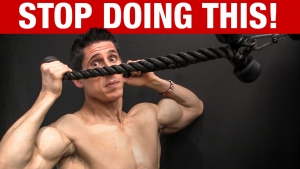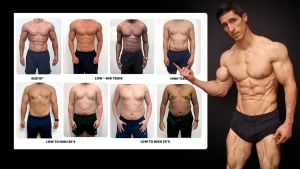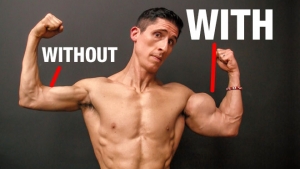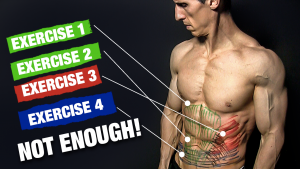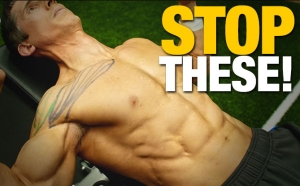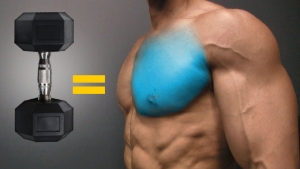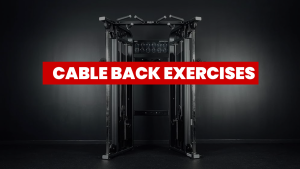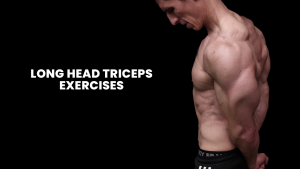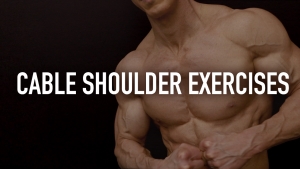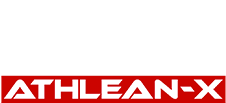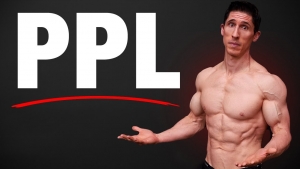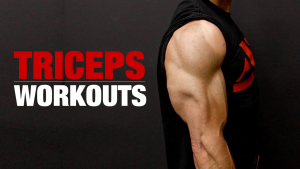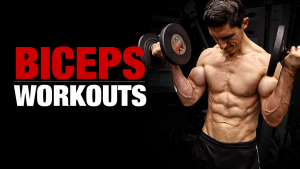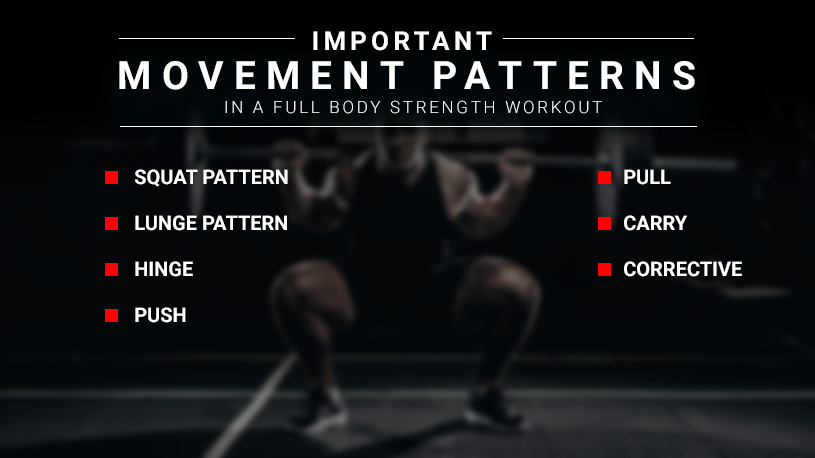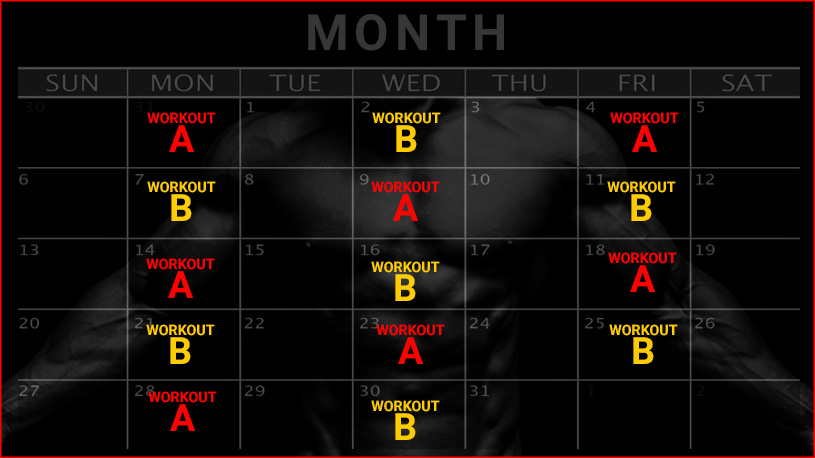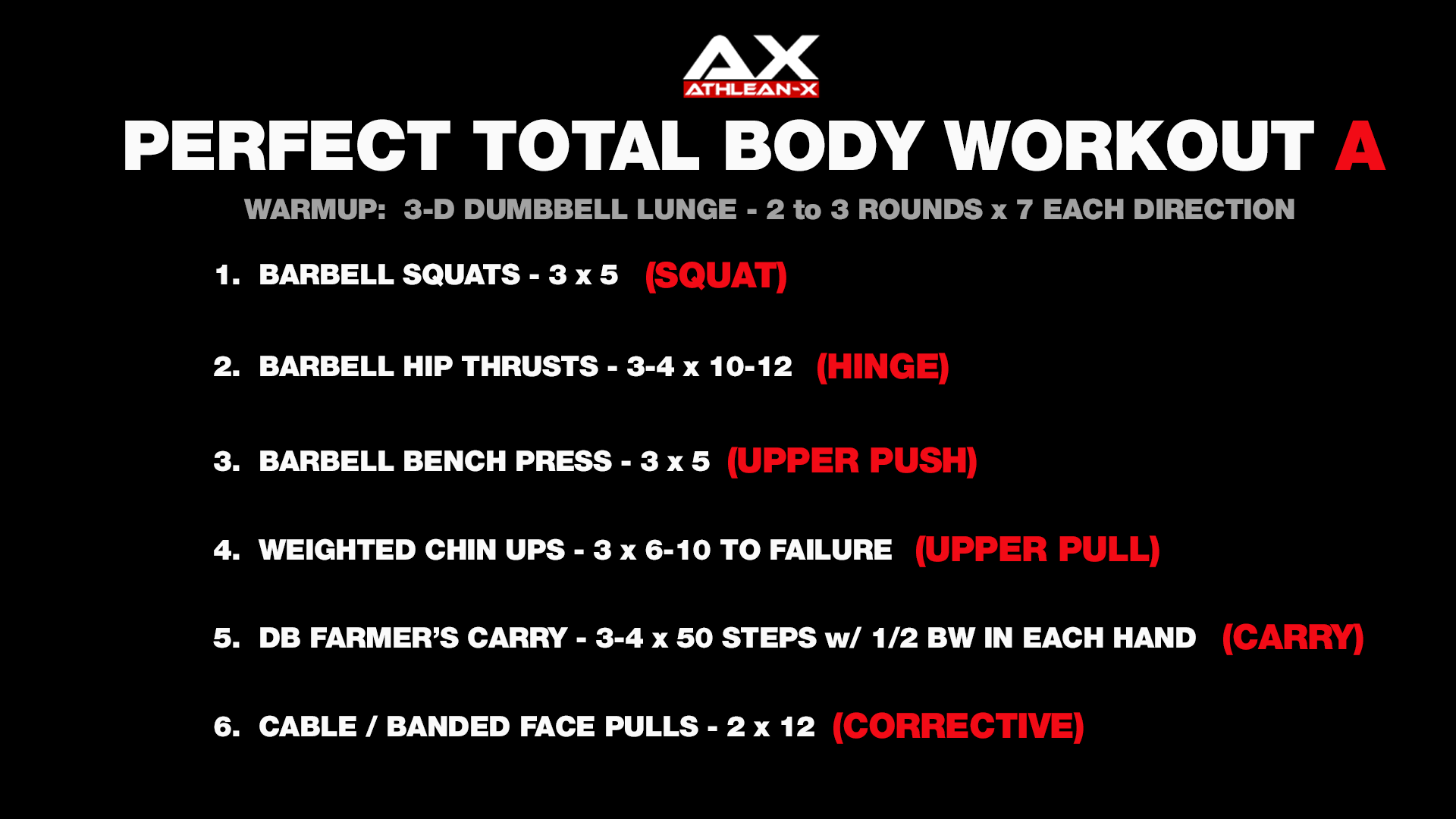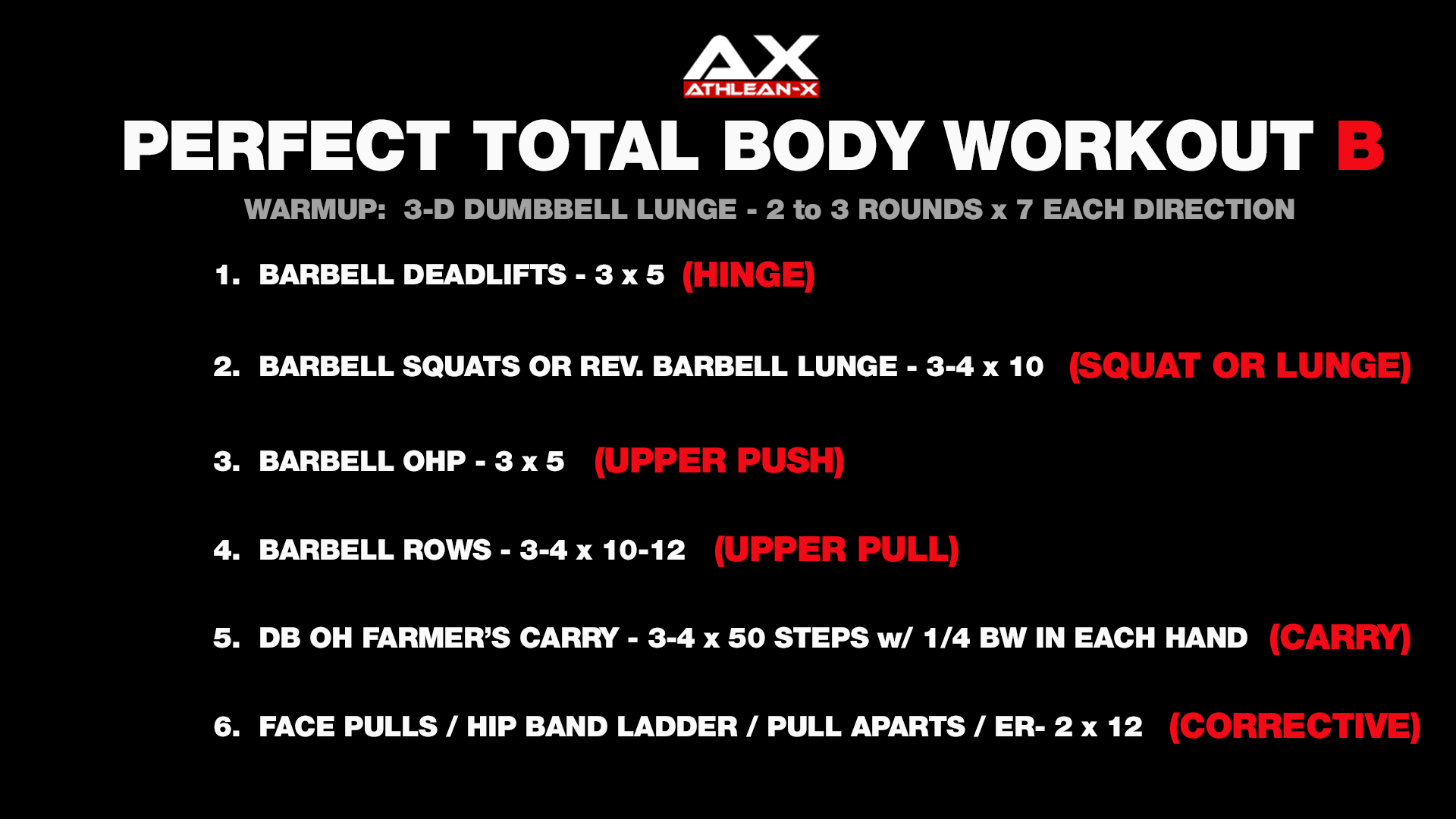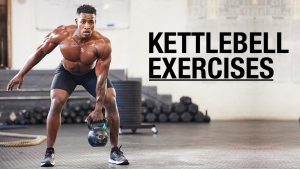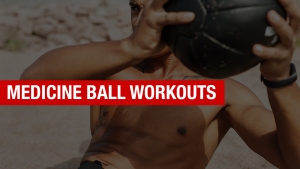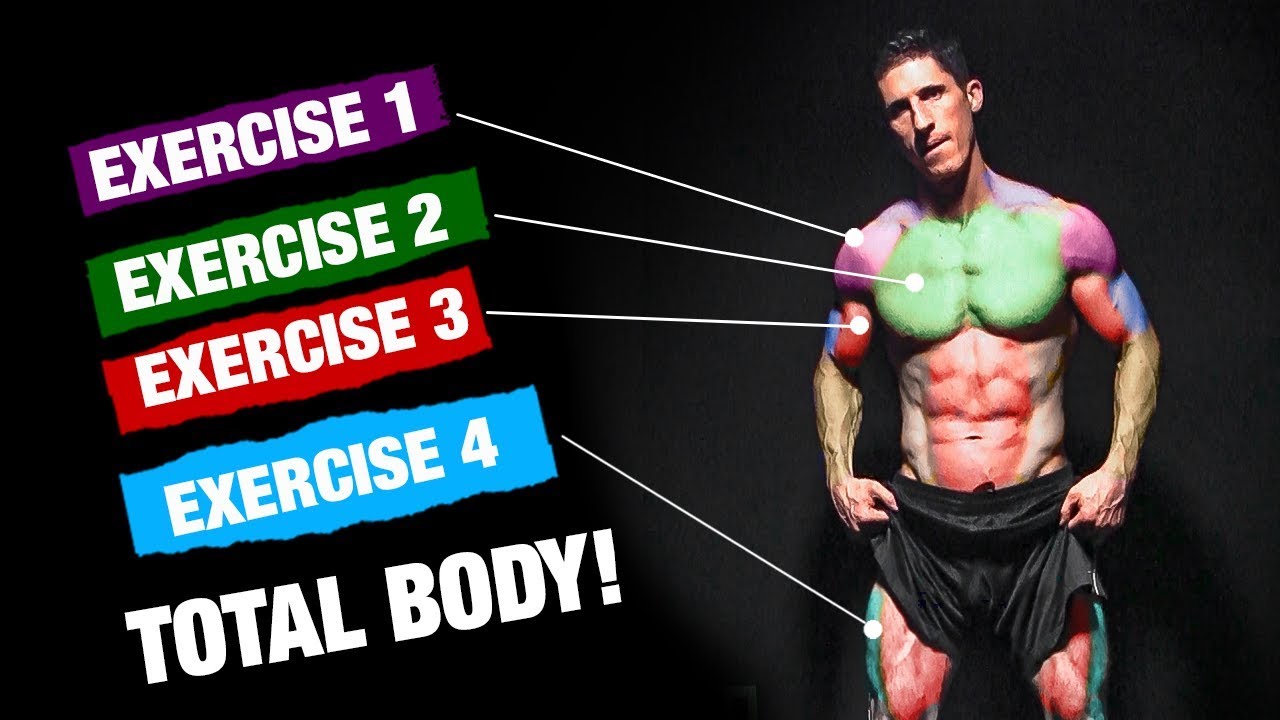
BEST FULL BODY WORKOUT
Constructing one best total body workout program is a challenge when you consider all of the larger muscle groups that you need to hit in that workout.
That said, I’m going to deliver you best total body workout routine to help you with building total-body strength and lean muscle mass.
But, I’m not going to stop there! I’ll give you not one, but TWO muscle building full body workouts and put them together in a complete one-month full body workout routine.
Not only will I show you the exercises, I’ll explain why I chose every single exercise for this full-body gym workout routine.
Instead of thinking about which exact lift is going to hit which major muscle groups, I want you to think more in terms of movement types. If we can train each of the most important compound movements in one effective workout, then we’ll be incorporating the muscles that achieve those movement patterns.
Important movement patterns in a full body strength workout:
- Squat pattern
- Lunge pattern
- Hinge – particularly the hip driven movement
- Push
- Pull
- Carry
- Corrective
In a full body split workout, we want to perform a lunge, hinge and squat for the lower body; a push and pull for the upper body; and a carry and corrective to round out our intense workout sessions.
The combination of these 7 components will not only hit all the major functions of human performance, but will lend itself to picking the right exercises for building muscle.
Let’s take a quick look at the most important benefits of full body training, and then we’ll launch into the four weeks of daily workouts with a rest day every other day. In other words, this will be a 3-day full-body weekly workout routine, or a 3-day workout split organized into a 4-week workout plan. If you’re a beginner you may need the recovery days in between as I’ve programmed them, but if you’re an athlete or training for another sport, you can use two of the rest days for additional types of workouts.
BENEFITS OF FULL BODY WORKOUTS
Let’s discuss the benefits of total body workouts to see why they’re so beneficial if your fitness goal is building lean muscle mass.
This type of strength training split allows you to train the major muscle groups of the body utilizing compound moves.
These type of compound exercises help you work toward building total-body strength and muscle at a faster pace and also help coordinate multiple muscle groups into one action, making them more athletically based and functional.
Science supports the fact that stimulation and re-stimulation of muscle tissue every 48 hours produces the most amount of muscle growth with the least amount of wasted time. You will find that total body workout sessions take advantage of this.
By allowing you to train your entire body with compound movement at an every other day, 3-day full body workout split training frequency, you are getting more frequent stimuli for protein synthesis, more accrued volume and more training sessions over a given period of time.
I’ve created two full body barbell workout routines, A and B. If you’re new to total body training, then just start with the A exercise routine. Either way, you’ll be training three days per week.
If instead, you want to adopt a more rigorous total body workout plan, then you will want to pair up Workout A with Workout B perform them in alternating fashion on Monday, Wednesday and Friday with a rest day on all the other days, for a 3 day full-body workout.
You can follow the workout calendar below for an entire four weeks of full body training with daily workout routines.
FULL BODY WORKOUT A
We’re going to start this effective workout with a warmup using an athletic movement pattern a lot of us overlook.
Our warmup will be the Multidirectional Lunge which is the exercise of choice for that lunge movement pattern.
MULTIDIRECTIONAL LUNGE

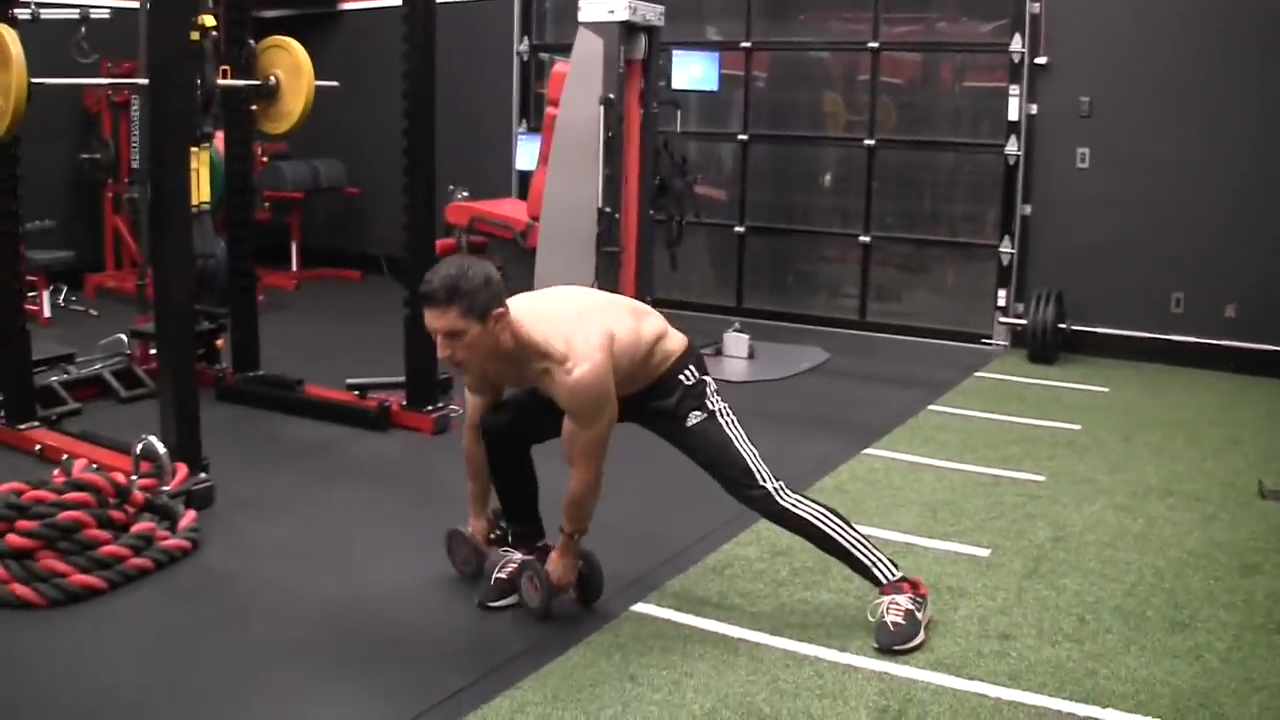
The Multidirectional Lunge exercise does a couple things very effectively. First, it gets us to move in multiple directions and it helps us mobilize our hips in all three planes of movement. It also increases our core temperature to make the muscle feel warmer and ready to attack the complete total body workout session.
HOW TO DO THE MULTIDIRECTIONAL LUNGE:
- Perform 2-3 rounds of 7 in each direction on the floor.
- First, two forward in the sagittal plane, two in the frontal plane, side to side and then two going back toward the right and the left in the transverse plane, opening up the hips.
BARBELL SQUAT

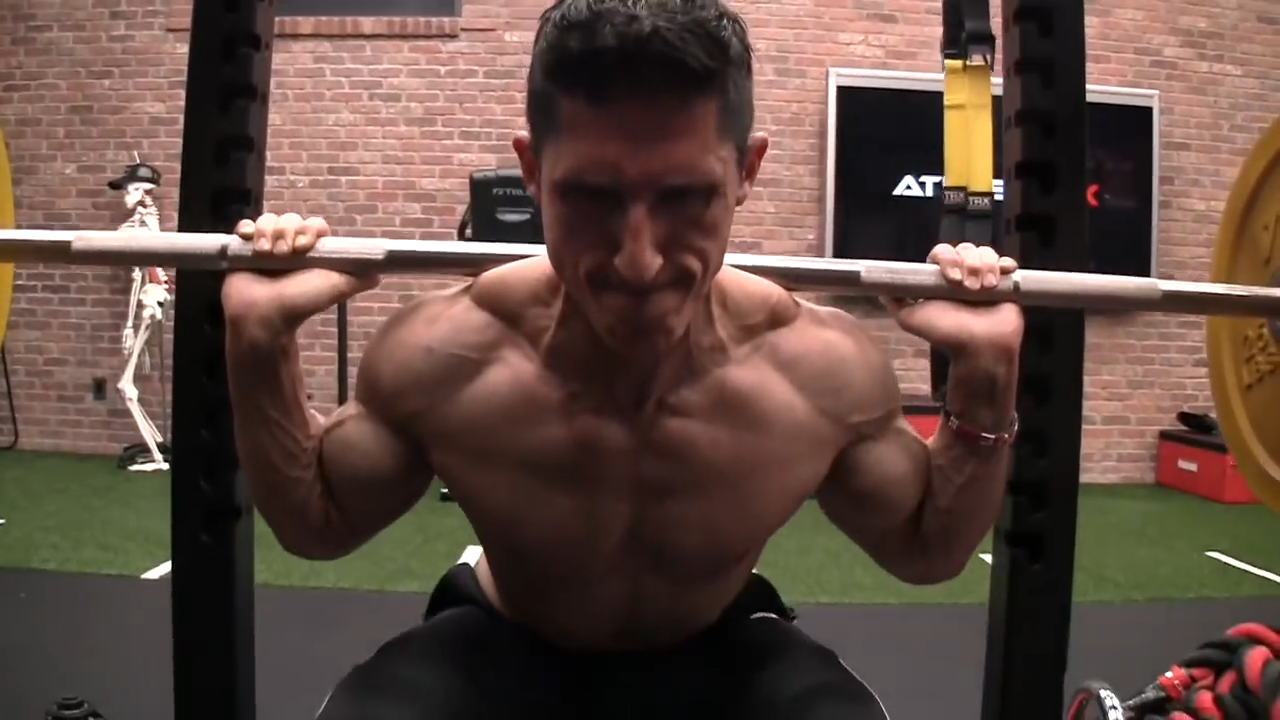
Now we move onto our foundational lower body movement pattern for strength using the Barbell Squat. Be sure you are performing this compound movement with correct form to minimize the risk of injury.
HOW TO DO THE BARBELL SQUAT:
- Starting position for this lift is in standing position with your feet shoulder width apart, hands just wider than shoulder width apart taking an overhand grip on the bar positioned behind your head.
- Bend your knees and come down until your thighs are parallel to the floor and then return to the start position.
- Instead of doing the traditional 5 sets of 5 reps, we’ll drop it to 3 sets of 5 because we want to leave some energy in the training session for the other foundational movement patterns.
- When you can perform all three sets of 5 repetitions using a particular weight, you’ll want to increase that weight to try to progress the overload on this classic lift.
BARBELL HIP THRUST

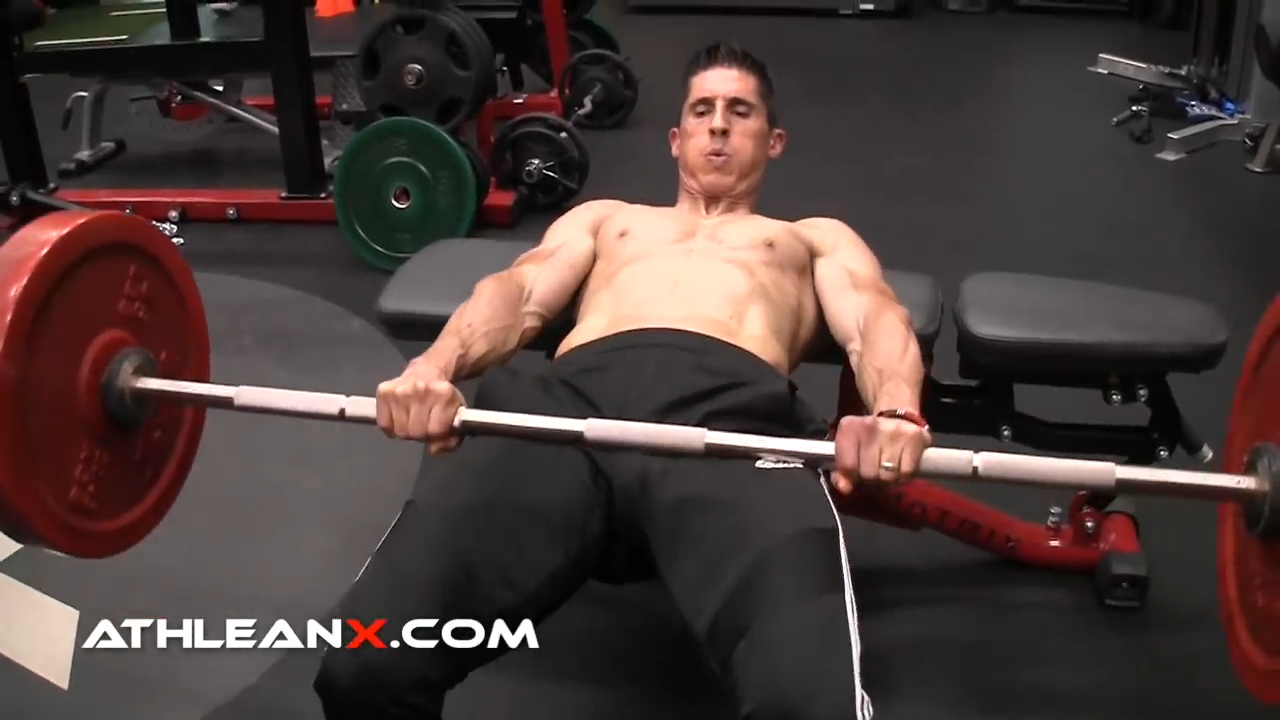
Our next exercise selection works the posterior chain, focusing on the hinge movement pattern with this lift. More importantly, we’ll be working on developing the overlooked aspect of gluteal muscle participation in a hinge.
Many people suffer from what we call ‘glute amnesia’ in their glute workouts, never driving the hinge using the appropriate lower body muscles. The Barbell Hip Thrust exercise helps remedy that because it’s driven solely by a hinge, and will help ensure the focus on glutes and achieving those glute gains.
HOW TO DO THE BARBELL HIP THRUST:
- Starting position for this lift is lying on the gym floor with knees bent and a bar across your lap.
- Drive your pelvis up from the floor into bridge position. Don’t load up super heavy weight to try to get in the 5 rep range, because we want to focus on driving this with the glute muscle.
- Instead, drop down to lighter weights in the 10-15 reps range and perform 3-4 sets to focus on driving this explosive movement.
BARBELL BENCH PRESS

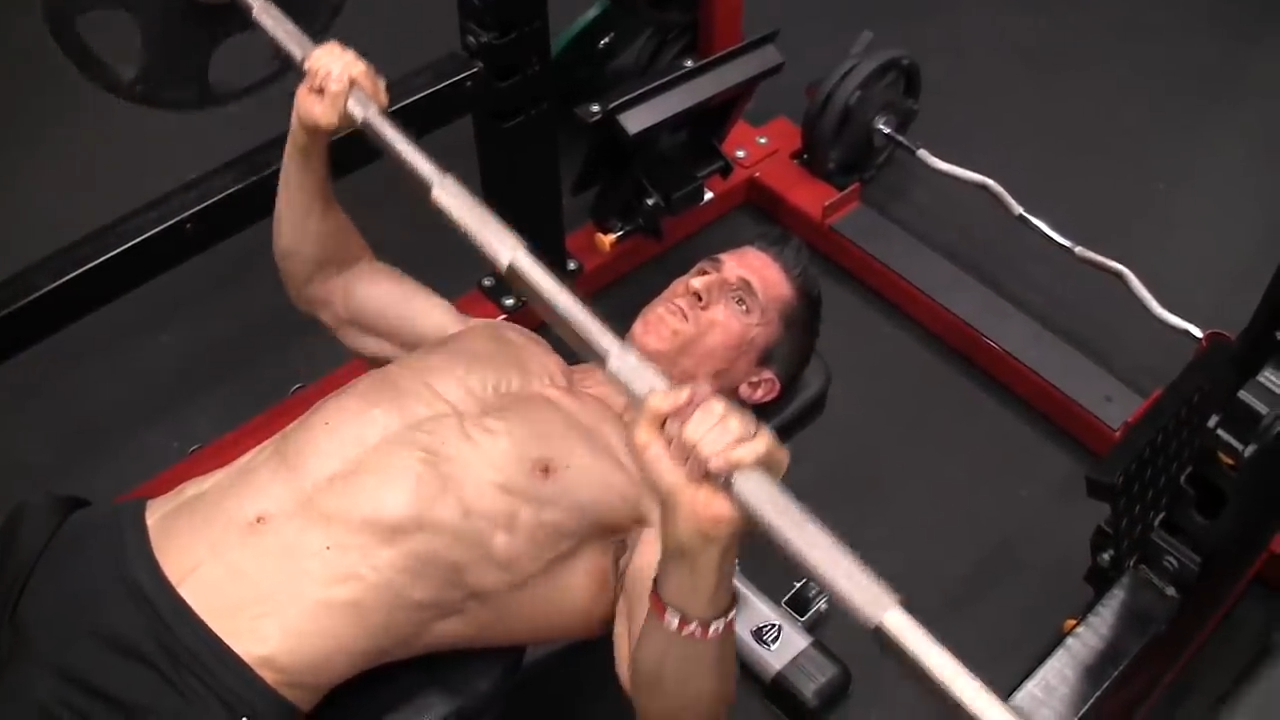
Now we move on to one of the most foundational movement patterns for push, and a great chest muscles exercise for hypertrophy, which is the Barbell Bench Press performed on a flat bench. This is perhaps the most common chest movement, but once again it’s important to use proper form in this lift to avoid the risk of injury.
HOW TO DO THE BARBELL BENCH PRESS:
- If you don’t feel adequately loose at this point, do a few warmup sets of the bench press on a flat weight bench.
- Attack this with 3 sets of 5 using heavier weight, and try to progressively overload from workout to workout to increase your bench press strength.
WEIGHTED CHINUP

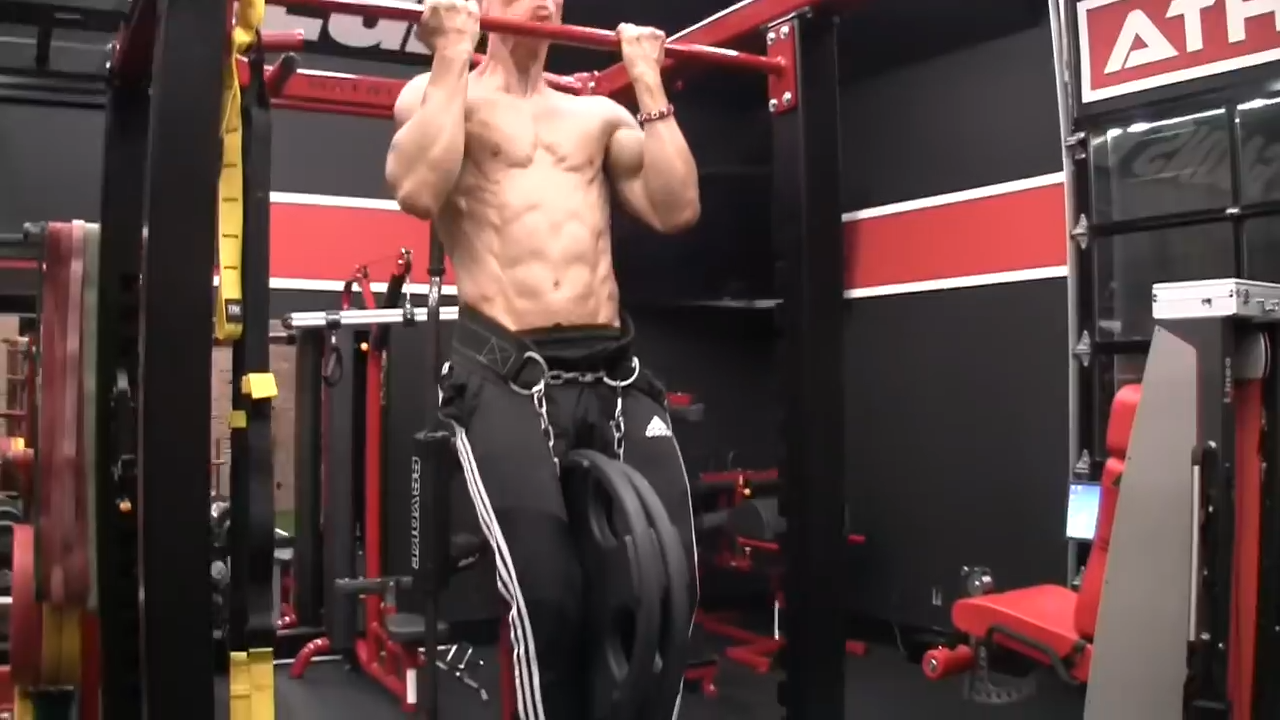
Next we’ll hit the pull fundamental movement pattern with the weighted chinup using a pull up bar. We’ll be using lighter weight on this upper body exercise also.
HOW TO DO THE WEIGHTED CHINUP:
- Use a pull-up bar for this challenging exercise. Load up a dog leash with weight around your waist and grab the pull up bar with an underhand grip.
- Don’t go all the way down to the 3-5 rep range because people tend to cheat those reps and don’t initiate the movement with the proper upper body muscles.
- Instead, we’ll be looking to fail in the 6-10 rep range. In this case, ‘fail’ means with good form and without kipping.
- For beginner workout plans, you can do these with body weight only. No matter what your current level, this is a killer biceps exercise.
DB FARMER’S CARRY

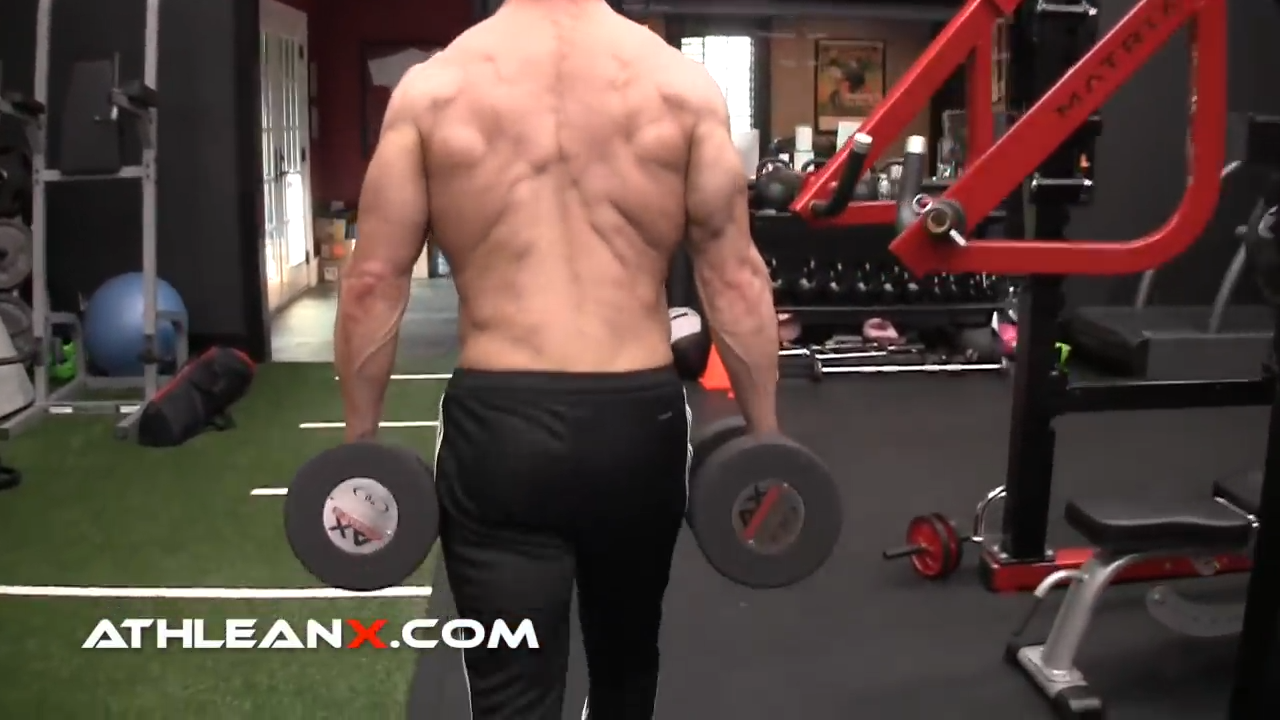
With our carry movement we’re going to be accruing additional volume. Our goals with this beneficial exercise are to get an additional conditioning effect from the carry, and to build grip sustainability which will benefit us in our major lifts. In fact, the Farmer’s Carry is a great exercise to include in every dumbbell workout session.
HOW TO DO THE DB FARMER’S CARRY:
- Take a pair of dumbbells one in each hand that make up half your body weight.
- Walk around the gym floor in whatever space you have for 50 steps.
- Be sure to keep your abdominal muscles tight throughout the movement.
FACE PULL

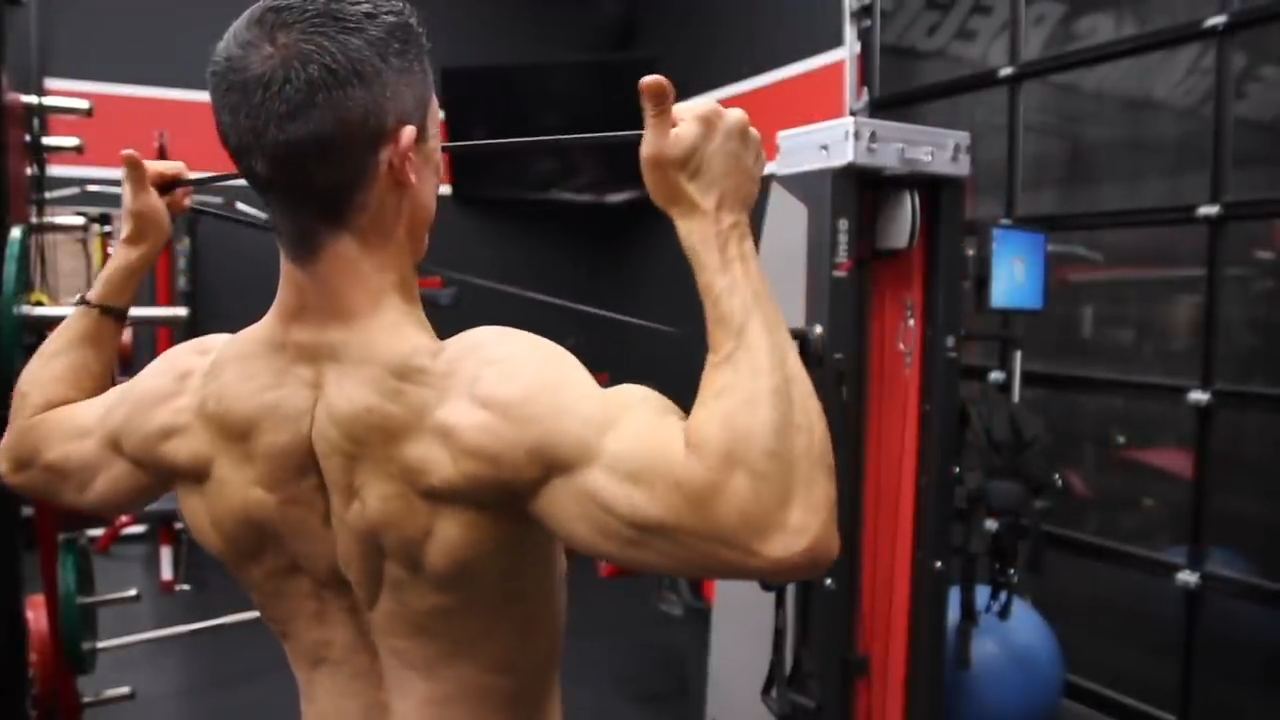
Our corrective exercise selection is going to be my favorite of the upper body exercises, the Face Pull. I add correctives to every total body workout because they’re helpful for injury prevention or even healing previous injuries. Every lifter should be doing the Face Pull at least a couple times per week. The Face Pull is the ideal upper body exercise to offset a potential muscle imbalance that is created with all of the pushing we do, and it also helps stabilize the shoulder muscle and rotator cuff.
HOW TO DO THE FACE PULL:
- Perform 2 sets of 12 Face Pulls, but think of it more like 12 sets of 1.
- Try to do 24 high quality, perfect repetitions, making sure you’re recruiting the right upper body muscles that are not only going to help you posturally, but in those bigger lifts as well.
- Focusing on high quality reps is the best way to make sure this exercise helps avoid potential muscle imbalance and injury.
FULL BODY WORKOUT B
Workout B will have the same structure as Workout A but will utilize different effective compound exercises for some of the movement patterns, for a complete total body workout routine.
We’ll start off with the same warmup to challenge that very beneficial 3D lunge pattern.
MULTIDIRECTIONAL LUNGE

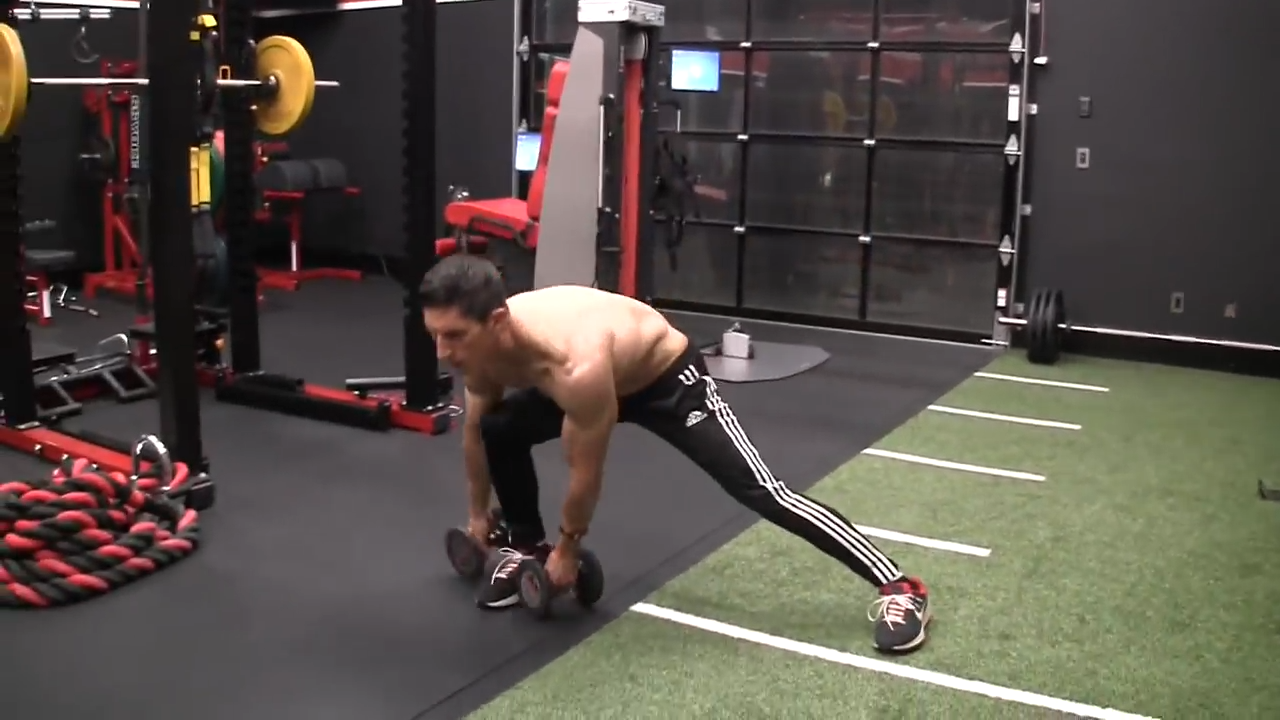
HOW TO DO THE MULTIDIRECTIONAL LUNGE:
- Perform 2-3 rounds of 7 in each direction: two forward in the sagittal plane, two in the frontal plane, side to side and then two going back toward the right and the left in the transverse plane, opening up the hip muscle.
- Alternate between right and left foot.
BARBELL DEADLIFT

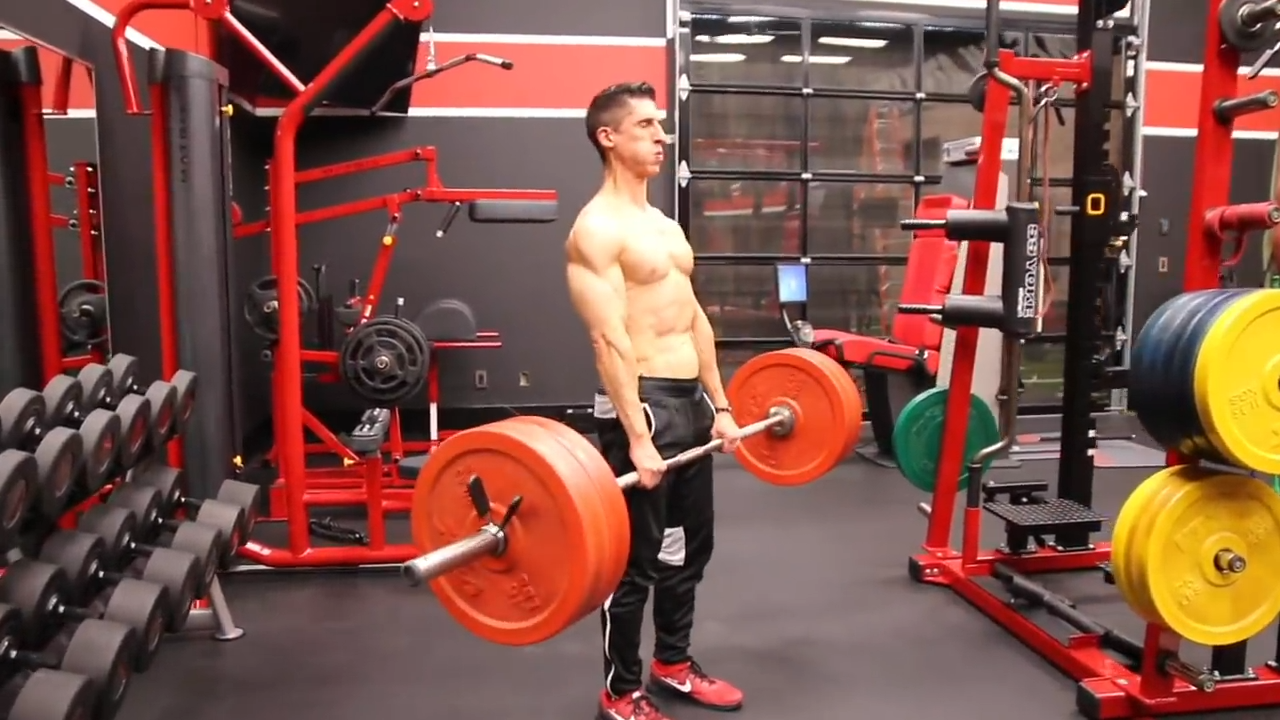
You’ll follow the previous exercise selection with the conventional deadlift variation. For this first big compound exercise, the hip-hinge movement becomes the focus for overload.
HOW TO DO THE BARBELL DEADLIFT:
- Perform 3 sets of 5 reps with the goal of progressive overload each time you encounter Workout B.
- Be sure to use good deadlift form for this classic lifting exercise to avoid injury.
- Be sure to keep hips square, core muscles tight and maintain a slight bend in the knee the entire time. Take adequate rest periods between sets.
REVERSE BARBELL LUNGE

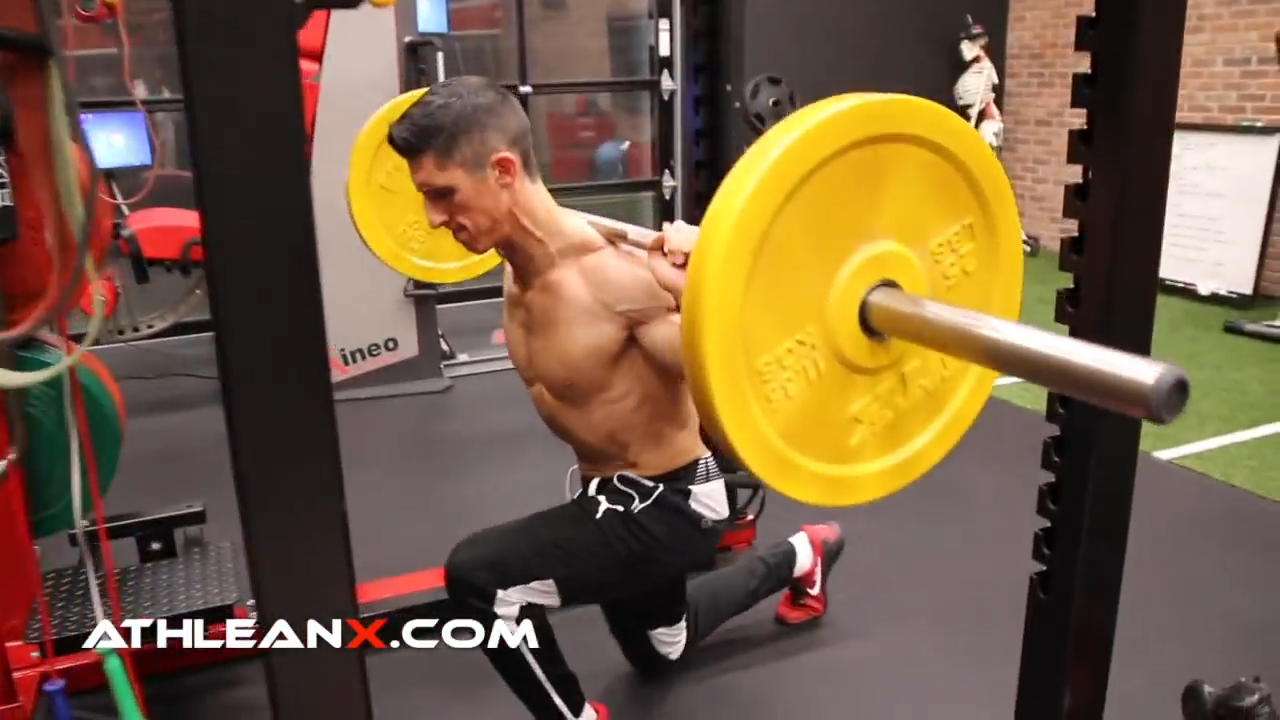
Continuing on with barbell exercises, for our next lower body move you have two choices: you can either squat again in this weights session or you can do a Reverse Barbell Lunge. The lunge is one of the most common hamstring movements that also hits glutes and quads. Performing a reverse lunge instead of a forward lunge will make it a more safe and comfortable movement for your knees. Of course the squat is a classic exercise that targets the entire lower body.
HOW TO DO THE REVERSE BARBELL LUNGE:
- If you choose the squat position compound movement, load with lighter weight instead of the same 3 sets of 5 framework.
- If you want to try the Reverse Barbell Lunge, stick with a 10-15 reps range. Whichever you chose, try to put most of your effort into the hinge.
OVERHEAD PRESS

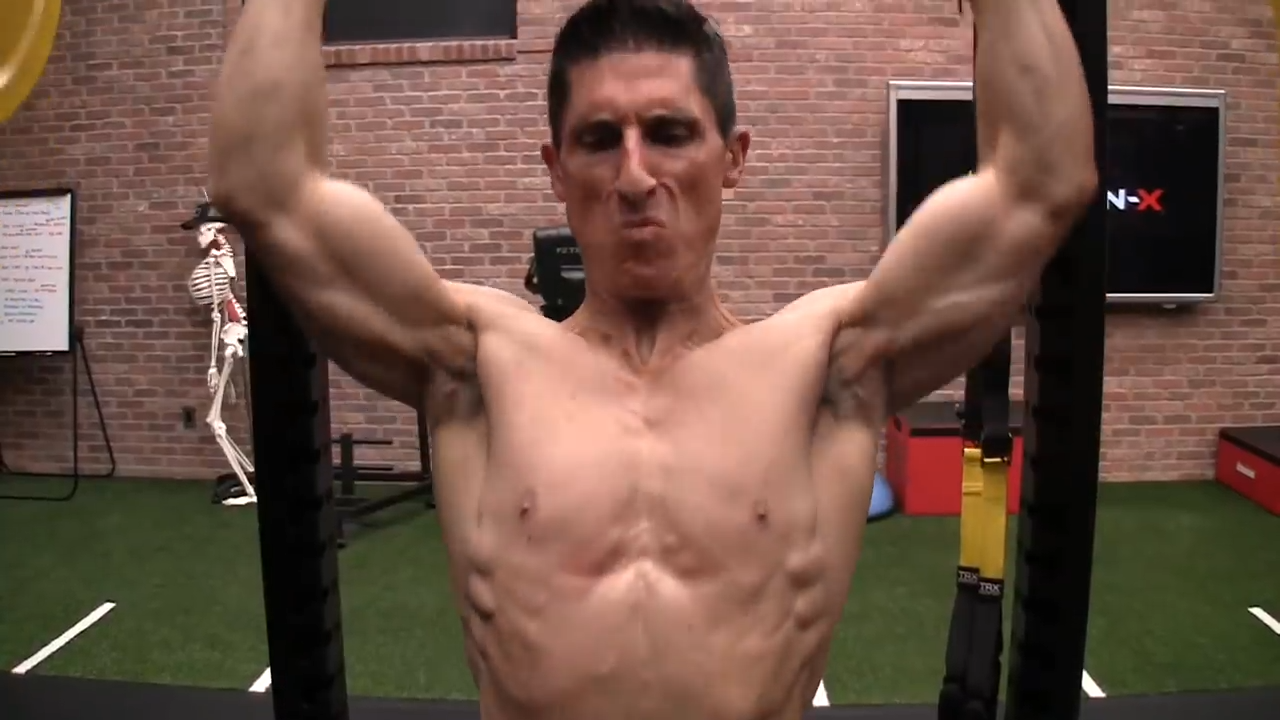
Following our previous exercise selection, we’re back to the upper body for our push exercise. The Overhead Press is one of the most common shoulder exercises and one of the most effective as well. This time the press is vertical instead of horizontal, but the goal is the same: to progressively overload and build up your strength in this explosive movement over time.
HOW TO DO THE OVERHEAD PRESS:
- Perform 3 sets of 5 on these overhead presses, lifting the barbell from shoulder height to up overhead in one smooth movement. Then lower down to the original position.
- Try to add heavier weight from workout to workout as you build strength, and take adequate rest periods between sets.
BARBELL ROW

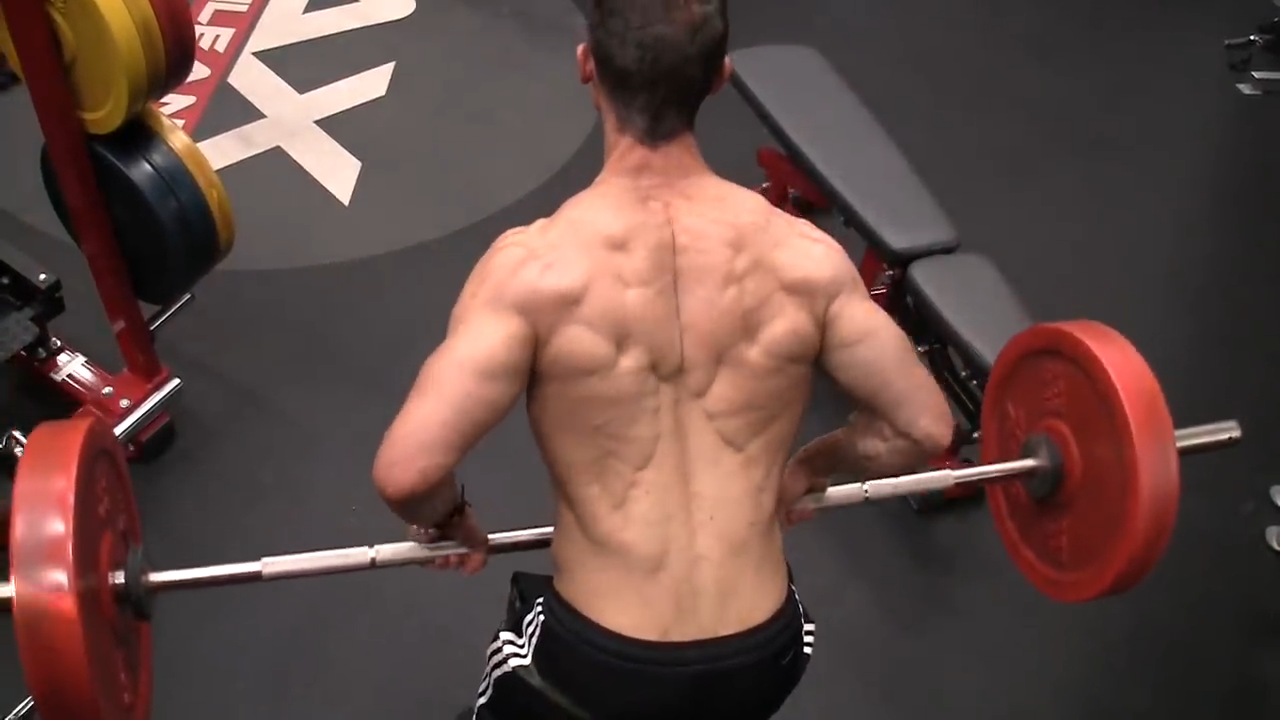
For our pull movement compound exercise we’re going to be focusing on the Barbell Row. I’d like you to keep the rep range for these bent-over barbell rows on the higher side, around 10 – 15 reps to avoid heaving the weight with bad form to avoid risk of injury.
HOW TO DO THE BENT-OVER BARBELL ROW:
- Perform 10 – 15 reps of this barbell bent over row focusing on back and lat muscle engagement and a good solid contraction on each rep.
DUMBBELL OVERHEAD FARMER’S CARRY

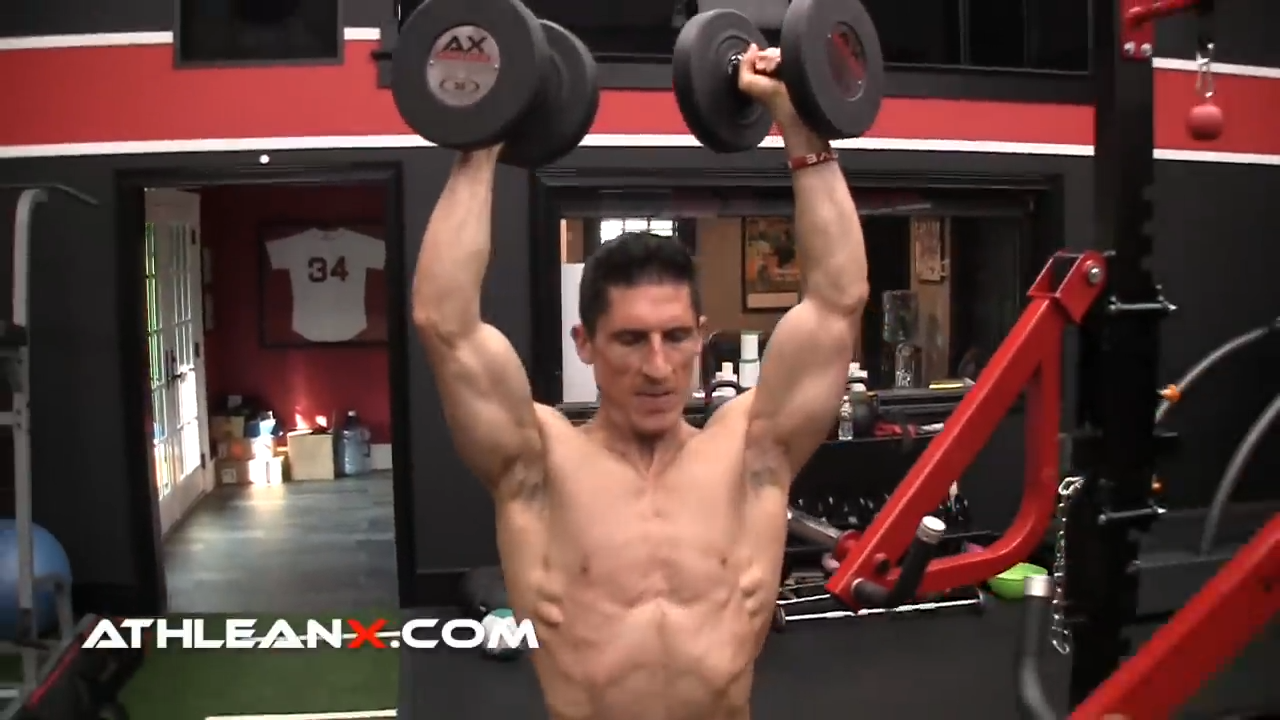
Following the previous exercise selection is our carry movement, but instead of carrying down at our sides we’re going to do an Overhead Farmer’s Carry. You should feel a lot of postural engagement and you’ll find it’s a challenge to keep your arms as upright and straight as possible. You should also feel the mid and lower trap muscle working overtime to keep you in this position.
HOW TO DO THE DUMBBELL OVERHEAD FARMER’S CARRY:
- Use ¼ of your bodyweight in each hand, raise the dumbbells over your head and perform 50 steps across the gym floor.
- Keep your core muscles tight throughout.
- Rather than arms in straight overhead position, slightly bend the elbows.
For your corrective exercise, if you want to do a Face Pull again, you’d be making me happy. But there are a few other good options below.
HIP BAND MINI LADDER

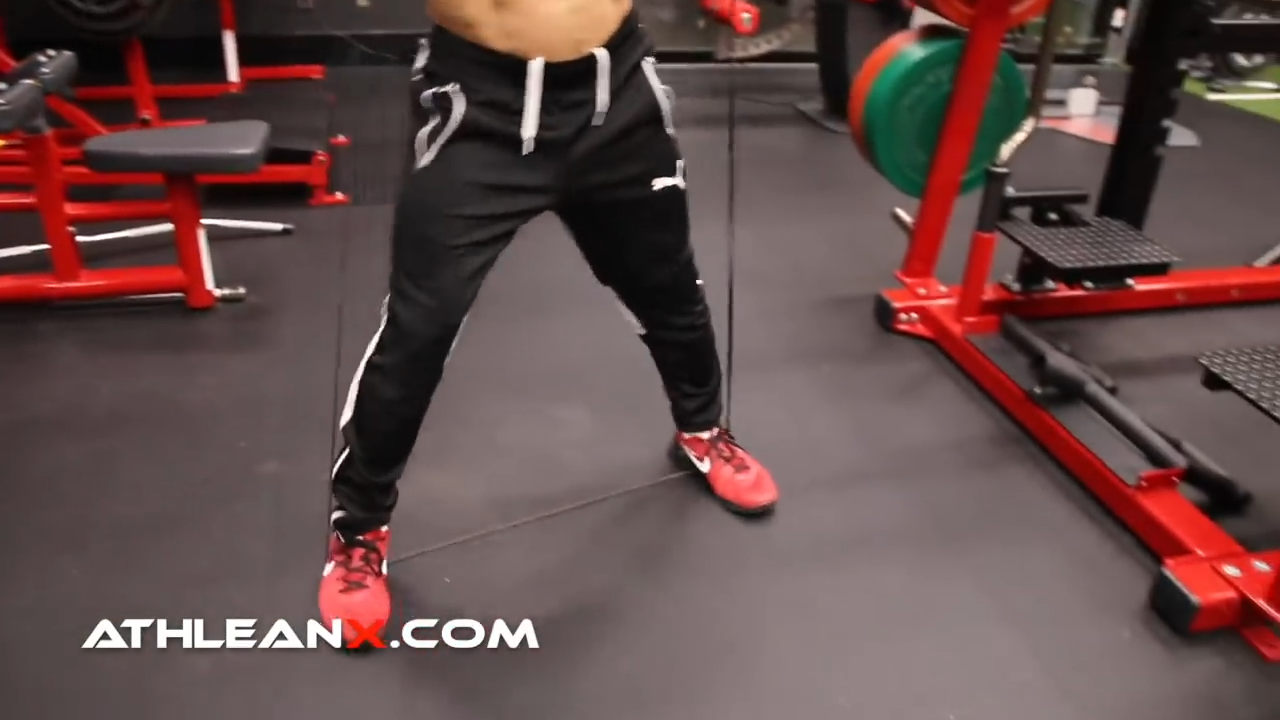
BAND PULL APARTS

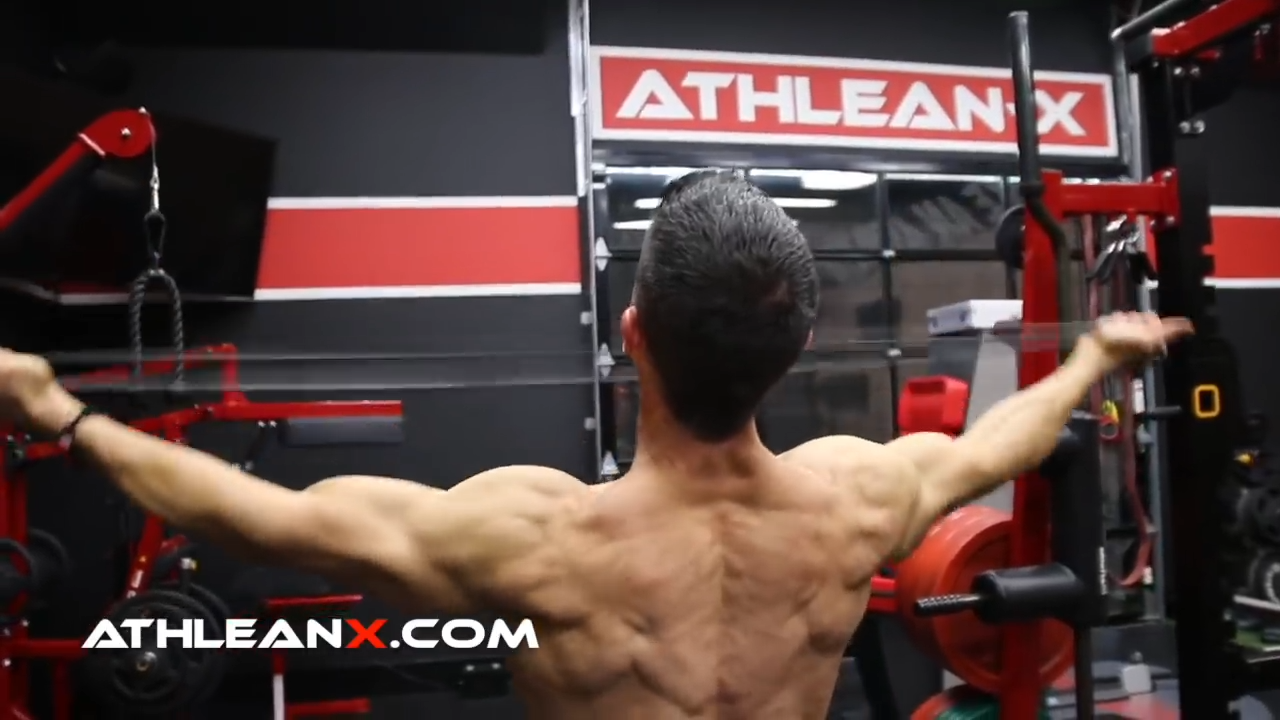
BASIC EXTERNAL ROTATION

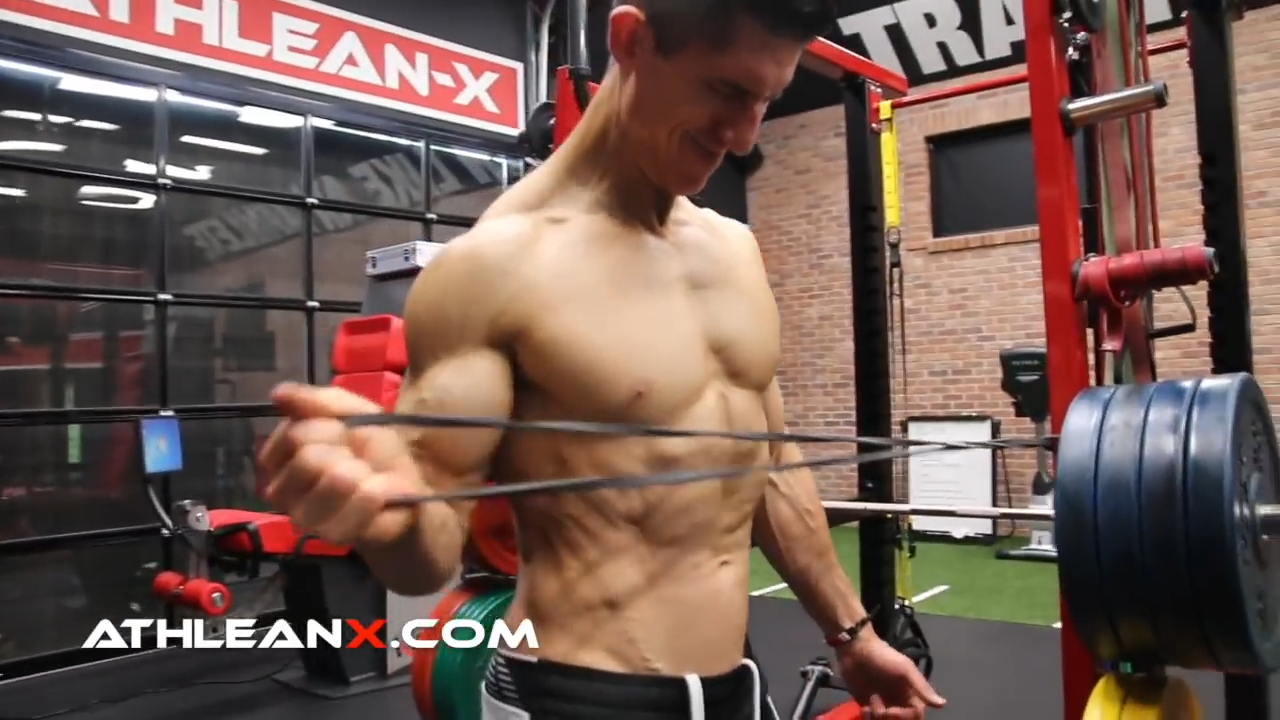
If you’re just starting out, the best total body workout to begin with would be Workout A. If you’re looking for a complete full body workout plan, alternate between Workout A and B according to the calendar I’ve provided you for a four week workout plan with daily workout routines. Science has shown that a 3-day full body workout plan with complete rest days in between is ideal for building muscle and having adequate and effective muscle recovery time. Whether you just want to experiment with one, or you want to incorporate both workout sessions into a sample workout plan, you’re going to see huge benefits from this full body training.
If you’re looking for a complete fullbody workout program with challenging exercises, I’ve got you covered! See which of our ATHLEAN-X programs best meets your fitness goals.

- Full-body sessions have endless benefits including building strength faster and using multiple major muscle groups in a single action, which is more athletic and functional, not to mention the additional health benefits of building lean muscle.
- Science shows that stimulating the muscles at a training frequency of every 48 hours with a rest day in between produces the most amount of muscle growth with the least amount of wasted time. This 3-day full body workout program shows you exactly how to achieve it.
- Every full body workout routine should include seven movement patterns: squat, lunge, hinge, push, pull, carry and corrective exercises.
- I’ve created 2 complete total body workouts that utilize each of these movement patterns. If you’re a beginner, give Workout A a try. If you’d like a more complete plan, follow the 30 day calendar I’ve provided to use Workouts A and B together. This will give you a regular workout routine of 4 weeks of daily workouts.
FULL BODY WORKOUTS FAQS
A good full body workout routine should include all the important movement patterns including squat pattern, lunge pattern, hinge, push, pull, carry and corrective. Here are some example exercises that you can add to your full body workout routine:
It's best to do full body workout routines about three times a week because it allows for sufficient rest intervals between workouts for the goal of building muscle. Three days per week is the ideal frequency of workouts for muscle growth because you have sufficient rest time between training to allow for the muscle building response.
Full body workouts are a great way to build muscle because they tend to focus on big heavy lifts that give you a great opportunity for progressive overload.
The best way to do a 3-day full body workout is to alternate days and alternate workouts. You should cycle through at least two different full body workouts and do them on alternating days. For example, on Monday perform Workout A, on Wednesday perform Workout B and Friday Perform Workout A. Take two days of rest and start off the following Monday with workout B.
It’s best to not do full body 4 times per week because your muscles need a rest day in between to recover and grow. A 3-day full body workout schedule works best because it allows for sufficient rest time between workouts.
It's best to do a full body routine 3 days a week with 1-2 rest days between workouts because it allows for sufficient rest time between workouts. This type of exercise with several sets of compound exercises and a large training volume will help maximize muscle gain, muscle hypertrophy and strength. You can do barbell compound exercises at the gym or a full body dumbbell workout at home with adjustable dumbbells.
The best full body workout routine is 3 times per week because you'll have just 3 workouts per week with 4 days of rest between your workouts, which is ideal for a beginner routine. For the beginner lifter, this type of training will help maximize muscle gain until your fitness level is ready for more advanced workouts. When you increase in experience levels, you can choose a different type of training split (such as a 5-day workout routine like push pull legs) to help you continue to progress in your fitness journey.
It's ok to do a full body routine every time if you are training 3 times per week, especially for a beginner routine. For more advanced lifters they may wish to adapt their workout split type for greater strength gains and muscle mass. A full body routine can be adapted to be an effective workout plan for any fitness level. Full-body weight training is the ideal type of training plan for a beginner level of experience up to advanced.
The best weekly workout schedule for full body programs is 3 times per week because you'll have just 3 training days with 4 days of rest between your workouts. This type of full body training programs helps to build muscle quickly because of the increased training volume involved in doing many sets of compound exercises. Once you get to a more advanced level in your training, you can choose a different training split to allow you to continue to build muscle and strength.
It's good to do a full body strength workout 3 times per week for the goal of building muscle because it gives enough rest time between training sessions for your muscles to recover and grow. Three times per week is an ideal frequency for muscle growth if you are doing total body workouts.
REFERENCES
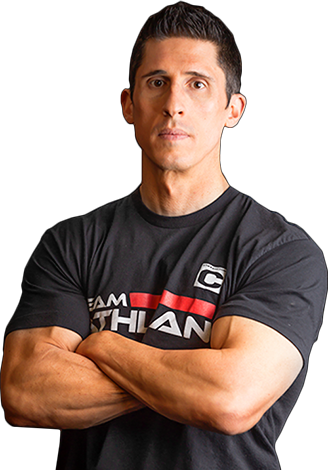
Jeff Cavaliere M.S.P.T, CSCS
Jeff Cavaliere is a Physical Therapist, Strength Coach and creator of the ATHLEAN-X Training Programs and ATHLEAN-Rx Supplements. He has a Masters in Physical Therapy (MSPT) and has worked as Head Physical Therapist for the New York Mets, as well as training many elite professional athletes in Major League Baseball, NFL, MMA and professional wrestling. His programs produce “next level” achievements in muscle size, strength and performance for professional athletes and anyone looking to build a muscular athletic physique.
